

We are so happy you could join us on this adventure. We hope you will make TheJoyofLanguage.com your source for information about speech and language development, early learning skills, and the foundation for reading, writing and math. Together we will encourage and support each other as we share knowledge, stories, and insights. Our community will be comprised of parents, grandparents, nannies, teachers, speech-language pathologists, pediatricians, and early childhood specialists. Please return again and again to our web site to discover more as we continue to expand. This is only the beginning, and we are so glad you’re here!
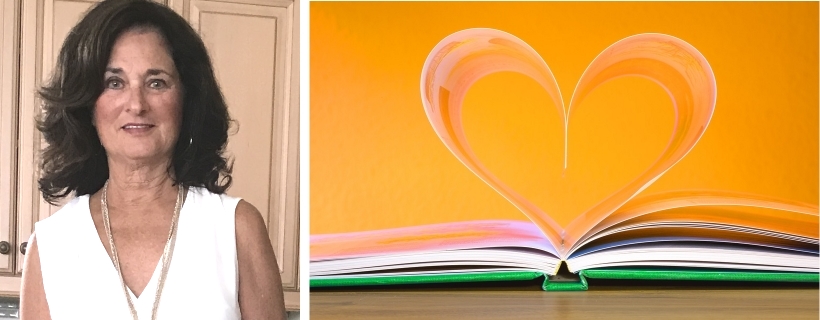
Can you imagine how difficult it must be for a baby to figure out where one word ends and another begins when she hears, "Letsstopatmymothersonthewayhome"?
Did you realize that when you are the speaker in a conversation, it is polite to look off to the side every so often so as not to bombard the listener with both your voice and your gaze?
New parents wonder, “When will my baby begin to speak?” and “Is his speech and language on track?” When do you think your baby actually begins to develop the structures and skills needed for speech and language development? Even before birth! Your baby can hear your voice and other environmental sounds in utero. He will not be able to see well at birth, but he will be able to hear everything, and even to discriminate one sound from another. We can see newborns tuning in to human communication; they seem to seek human faces, especially when we are talking to them.
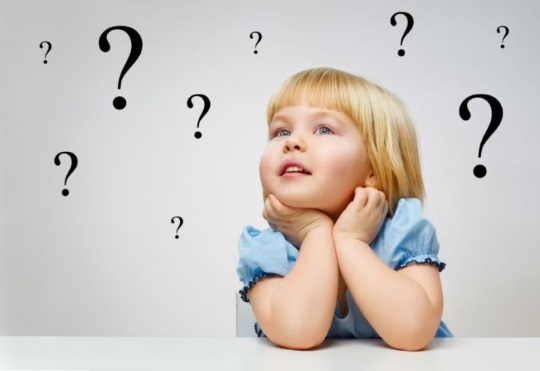
Has your toddler reached that age when she can’t seem to stop asking that one question that you knew would be coming some day: WHY? If so, then she is well on her way to using language to gather information about everything she notices around her. And isn’t that what we do every day?
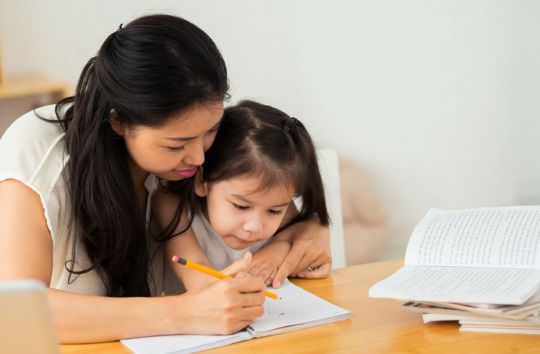
Of course, before beginning to actually spell words, acquiring good fine motor skills is necessary for the ability to hold and manipulate a pencil, crayon or marker. Having fun scribbling, drawing, painting, and any other activity that provides practice in manipulating a writing/drawing tool should be encouraged. Paper with and without lines...

Since young children need to attend to so many things for physical, cognitive and emotional development, they need to practice watching and listening. And since we know that all children have their own learning styles and needs, it is important for you to observe and understand your child’s specific style.
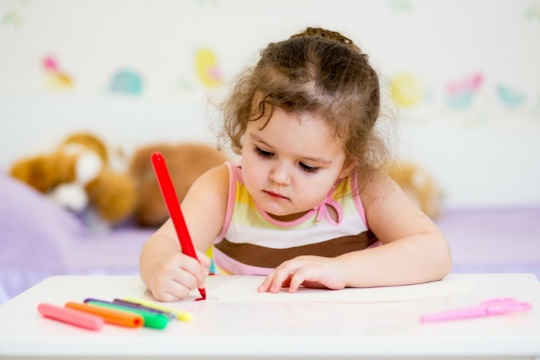
Do you remember how you learned to spell? Probably not. Did you first learn the alphabet, then learn to "sound out" words? Did you start with "invented spelling"? Did you learn easily, or do you still have some trouble spelling certain words? Do you know how to help your child with some first spelling?
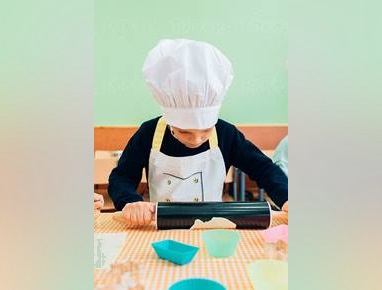
Your child deserves the best care in all ways, every day. So whether you are hiring a caregiver (babysitter, nanny, friend or relative) or looking for the best nursery or preschool for your little one, you expect to leave him or her with someone loving, responsive and knowledgeable - someone your child will look forward to being with every day. But how will you find the best preschool experience for your child?
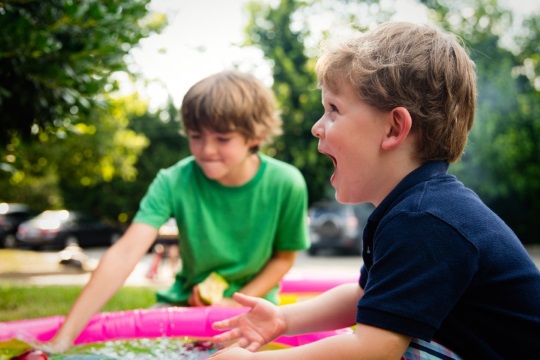
Speech and language? Is speech the same as language? Actually, there is quite a difference between speech and language, although speech is generally a part of language (there is also written and signed language). Speech is the physical process of making sounds that make sense and have meaning – in other words ...

Let’s think about your child’s first words. Words are grouped by how they are used. Content words are those that carry the content, or meaning, in a sentence. Function words are those that function as part of our grammar, but carry little meaning. Which type do you think your child will learn first?
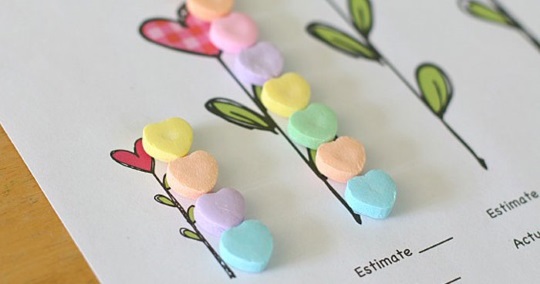
Do you have some paper clips? Toy trucks? Blocks? Shoes? Crayons? Juice boxes? Soup spoons? Then you have the perfect tools for measurement! How many crayons do you think it will take to get from...
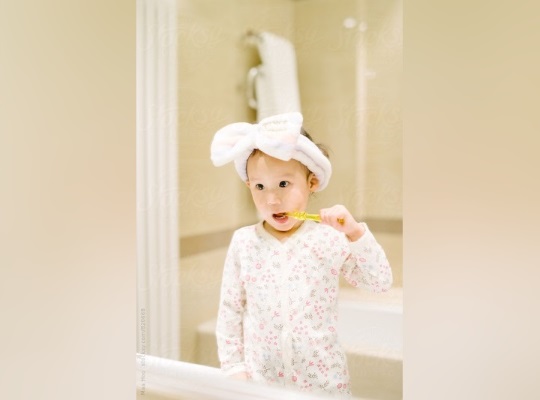
Many times children don’t know what the end goal is. We teach them many things during the day that are seemingly unrelated before eventually being able to use that information in a functional way. For many children, keeping the end in mind greatly increases learning of the skills that are needed in order to produce that goal.
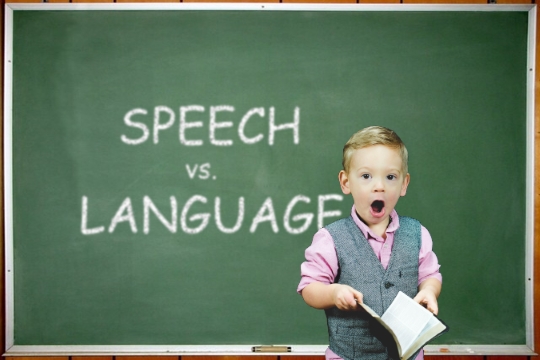
Sometimes people talk about a child's speech, when they really mean language. Although speech is an integral part of language, the words are sometimes used interchangeably. Speech usually refers to the pronunciation of words (articulation), the easy flow of speech (fluency vs. stuttering), and the quality of the sound of one's voice (normal sounding vs. hoarse, harsh, or unusual in pitch or volume). Speaking requires us to translate our thoughts into sound sequences that are understood by others. The thoughts and the sentences to express them is language; the actual sounds are speech.
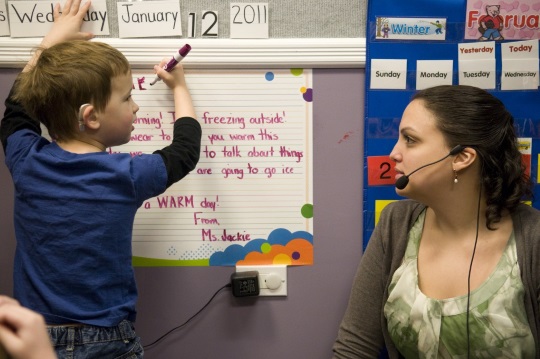
Has your child been diagnosed with a hearing loss? Has he been prescribed hearing aids to be worn at school? Does her teacher know how to make the appropriate accommodations so she will achieve the same academic level as her peers?